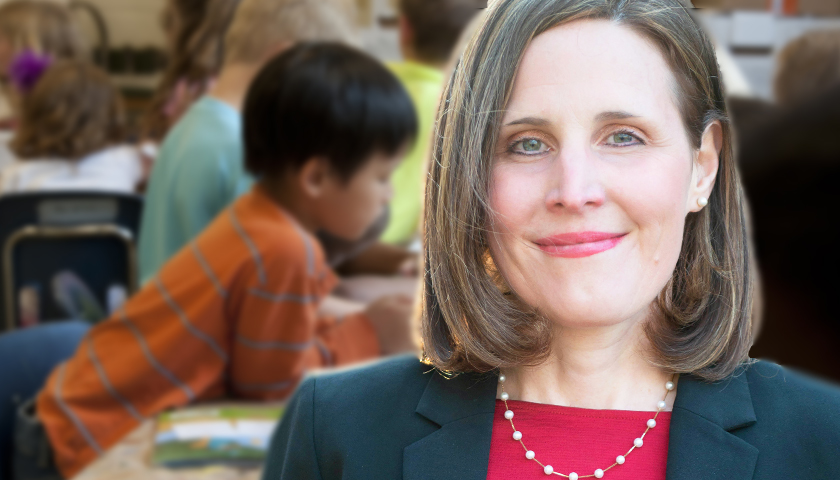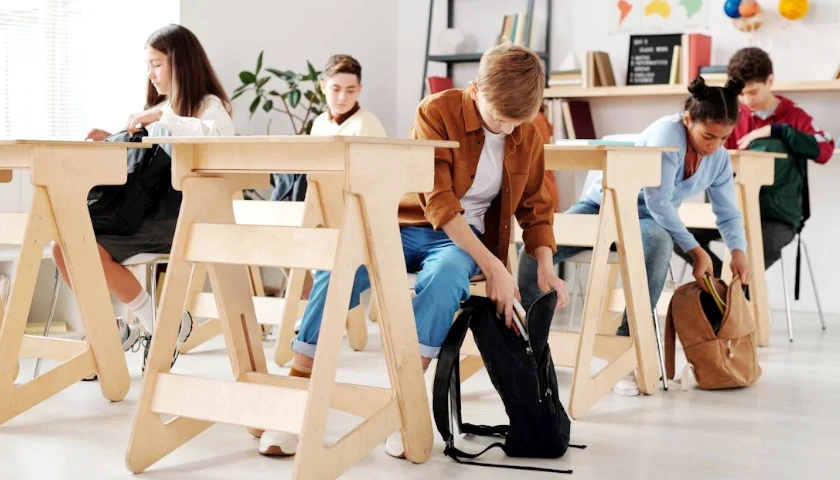Senior Education Fellow at the Foundation for Economic Education (FEE) Kerry McDonald told The Star News Network the time is ripe in America for greater innovation and entrepreneurship in providing new education models for parents exiting the government school system.
Many parents got an up-close look at what their children are learning in public schools for the first time during the pandemic school closures and subsequent remote learning, leading them to consider education alternatives.
But McDonald, host of the weekly LiberatED podcast, said even pre-pandemic, parents were showing greater interest in education alternatives.
“Microschools and other innovative education options, and self-directed learning centers, were already gaining traction,” she noted:
And that, of course, accelerated over the past couple of years. Starting with the kind of pandemic pod movement in 2020, when parents realized that schools were going to remain closed and that they needed to take matters into their own hands and form these small social communities, hire teachers, or take turns, in facilitating a curriculum with their kids – which was very much what the microschool movement was already doing. And now we’re starting to see the combination of the kind of pandemic pod, and microschool, and hybrid homeschool models coming together.
McDonald, the author of Unschooled: Raising Curious, Well-Educated Children Outside the Conventional Classroom, recently interviewed a veteran teacher in New Jersey who, while schools were closed down in the fall of 2020, pulled her own children out of school to join in running a pandemic pod with other families.
“They loved it so much that she evolved that pandemic pod into a full-fledged learning community, now running as a private membership association in New Jersey,” McDonald told The Star News Network. “They have over 40 students, lots of teachers they’ve been able to hire, including some teachers that left due to various COVID policies in the New York and New Jersey area, and wanted more freedom and flexibility, and they just recently bought a building and are expanding!”
“So, that’s the kind of innovation and entrepreneurship I think we’ve been seeing a lot of over the past couple of years,” she explained. “As parents demand more options for their kids’ learning, more freedom and flexibility in their kids’ education, and then you see these entrepreneurial educators really rising up to provide those new learning models.”
McDonald said it is the combination of more school choice policies expanding in the states, and education entrepreneurship that is giving families more education options outside of government schools.
“Where you do have these entrepreneurial educators and startup founders, you know, recognizing opportunities and gaps in the education market, and then inventing these new solutions,” she added.
Asked about the value of children returning to schools that are overrun with teaching concepts of Critical Race Theory and an LGBTQ agenda, rather than basic academic foundations, McDonald said she foresees the mass exodus from government schools to other education venues continuing, even though schools are generally back to in-person learning:
We’ve seen increased funding at every level in education over the past couple of decades, and it hasn’t improved education outcomes or education quality, and, so, just simply adding more billions of dollars to the education budget is not going to make a big difference. And I think parents realize that and that’s why they’re increasingly looking for alternatives to an assigned district school and wanting a share of that K to 12 education funding, so that they can make the best education choice for their child.
In a recent column at FEE, McDonald also noted, “It’s not just families fleeing district schools for other options. Teachers are leaving too.”
She observed In another episode of her LiberatED podcast the effort of two entrepreneur brothers from Kansas who launched a platform to help teachers leave their classroom jobs in order to create their own microschools and learning alternatives.
One of the Umbehr brothers, a family physician, had earlier developed a similar platform for his medical colleagues that has helped them leave managed care practices in order to build their own direct primary care practices instead.
To critics of school choice who claim allowing the funding to follow the child instead of the system hurts public schools, McDonald pointed out that other government programs, such as food stamps, operate in a similar way:
We don’t have government-run grocery stores assigned to us by zip code. You would think it odd – I think most of us would think – that if we had private grocery stores that can decide whether or not to accept food stamps for those families that need them … It’s just bizarre to me, that the Left has embraced this with education.
Nevertheless, McDonald sees the combination of school choice legislation and education entrepreneurs continuing to provide more high-quality options for families.
“The educational realignment from institutions to home- and community-based models that accelerated in 2020 isn’t slowing down,” McDonald wrote in her recent column. “Now that parents and teachers have glimpsed educational possibilities beyond a traditional classroom, they are less willing to put up with the schooling status quo.”
– – –
Susan Berry, PhD, is national education editor at The Star News Network. Email tips to [email protected].
Photo “Kerry McDonald” by Cato Institute.






Will these alternatives provide a REAL education for our children, or will they simply be fronts for right-wing, bigoted, militaristic, and fundamentalist propaganda masquerading as patriotism and education?